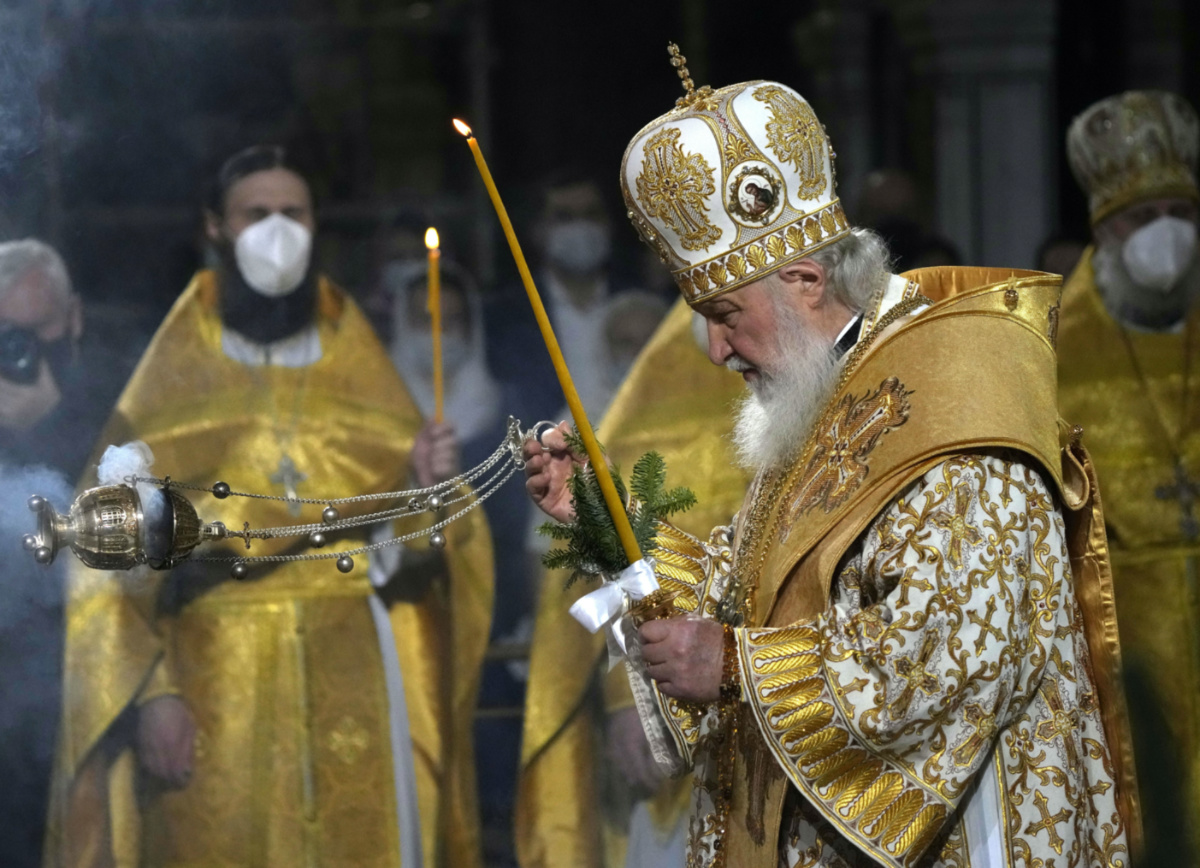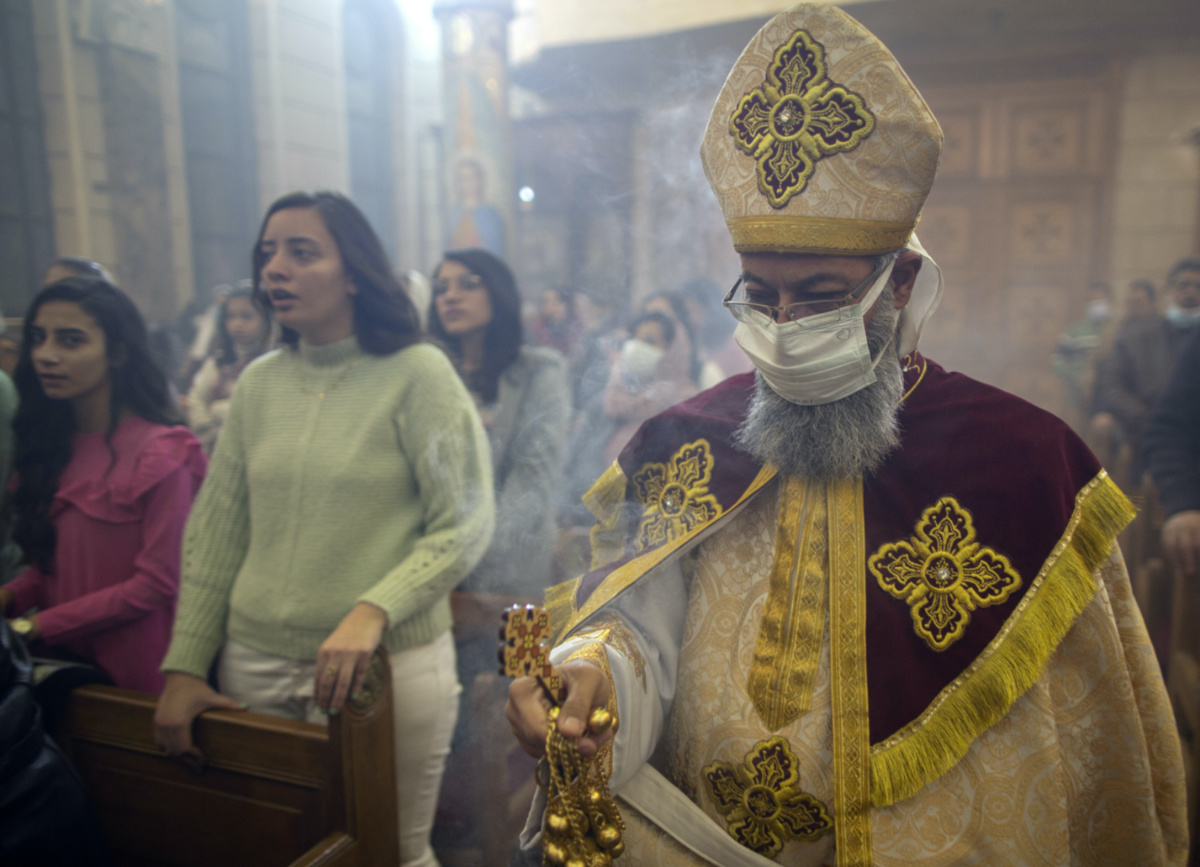Moscow, Russia
AP
Orthodox Christians in Russia, Serbia and other countries began Christmas observances Thursday amid restrictions aimed at dampening the spread of the coronavirus, but few worshippers appeared concerned as they streamed into churches.
The majority of Orthodox believers celebrate Christmas on 7th January, with midnight services especially popular. The churches in Romania, Bulgaria, Cyprus and Greece mark it on 25th December along with other Christian denominations.

Russian Orthodox Patriarch Kirill delivers the Christmas Mass in the Christ the Saviour Cathedral in Moscow, Russia, on Thursday, 6th January. Parishioners wearing face masks to protect against coronavirus, observed social distancing guidelines as they attended the the Mass. Orthodox Christians celebrate Christmas on 7th January, in accordance with the Julian calendar. PICTURE: AP Photo/Alexander Zemlianichenko.
The Russian Orthodox Church, the largest Orthodox congregation, said celebrants must wear masks and observe social distancing at services. But a live broadcast of the service from Moscow’s huge Christ The Saviour Cathedral indicated about half those attending had no masks or pulled them to their chins as they watched the pageantry of gold-robed priests, including church leader Patriarch Kirill, chant prayers and wave smoking containers of incense.
Russian President Vladimir Putin, also without a mask, attended a service at the Church of the Image of the Saviour Made Without Hands in Novo-Ogaryovo, outside Moscow.
Although Russia’s daily tally of new infections has dropped by about half since a month ago, to about 15,000 Thursday, concern is strong that the highly contagious omicron variant may be getting a foothold in the country. Health Minister Mikhail Murashko said Thursday officials have detected omicron infections in people who had not travelled outside Russia.
In Serbia’s capital, Belgrade, hundreds of worshippers gathered outside St Sava Temple, the largest Serbian Orthodox church, for the traditional burning of dried oak branches that symbolise the Yule log. The church also scheduled a midnight Christmas Eve liturgy.
No specific anti-virus measures were announced for Serbia’s religious ceremonies despite a huge rise in infections apparently fueled by the omicron variant. Serbia on Thursday reported more than 9,000 new cases for the past 24 hours, which was the highest daily number since the start of the pandemic.

Bishop Dawod Makram wears a face mask, to help prevent the spread of the coronavirus, as he leads the Coptic Orthodox Midnight Mass on Orthodox Christmas Eve at Church of St George in Cairo, Egypt, late on Thursday, 6th January, 2022. Copts celebrate Christmas according to the Julian calendar, meaning it falls on 7th January. PICTURE: AP Photo/Amr Nabil.
Health measures in Serbia include mandatory face mask use indoors and and limits on gatherings, but the rules have not been fully respected. Vaccination passes are required for bars, restaurants and clubs in the evening but not for churches or other indoor venues.
Serbian Patriarch Porfirije in his Christmas message singled out medical workers fighting the virus and said that “I pray for the sick to get well as soon as possible an for the disease that has attacked the world to pass.”
“The church therefore calls during the pandemic for the respect of reasonable measures and recommendations of governments and other authorities in the states and regions in which our people live, but also reminds everyone to avoid exclusion and for respect of human freedom as the highest and most valuable God’s gift to men,” Porfirije added.
In Kazakhstan, the sizable Orthodox community could not observe Christmas in churches because all religious services were cancelled under a nationwide state of emergency imposed after violent clashes between protesters and police in several cities. About 20 per cent of the people in the predominantly Muslim country identify as Orthodox.
– With JOVANA GEC in Belgrade, Serbia.





